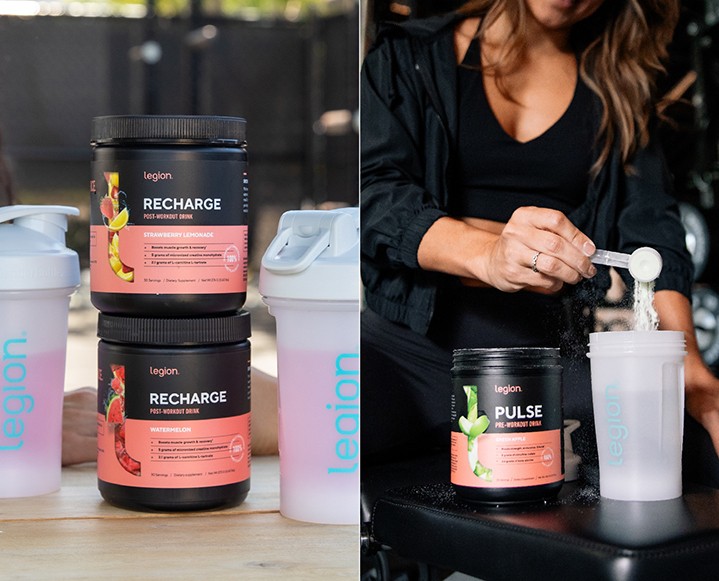You live for your superfood smoothies, but bae would rather skip breakfast than ever sip it through a straw. You lose sleep dreaming of dinner at that new vegan haunt, but your besties are all about a night of burgers and beer. You want to spend your Sunday scoping out a new fave hike, but your dog baby just wants to sleep on the floor all day. Welcome to the dark side of life as ‘the healthy friend’.
What are we supposed do when our wellness habits don’t exactly line up with the rest of life? As we don’t plan on replacing friends anytime soon, we asked integrative nutritionist, Jennie Miremadi, to offer her best tips for when we’re orbiting outside of our wellness bubble.
No matter how much you love your friends, when you’re the only one in the group who eats healthy, social situations that involve food can be challenging. It isn’t always easy making sure there’s food you can eat or knowing how to communicate about food when you have a completely different diet from your friends. But, if you value your friends and want them in your life, it’s important to find ways to navigate around your food differences. And, with a little bit of effort, it is possible to find common ground:
How you communicate is key
When you’re talking about food with your friends, if you say something that comes across as self-righteous or critical, you could end up with hurt and angry friends. It’s not about walking on eggshells with your friends, it’s about reframing the way you approach the conversation. If your friends are eating chili cheese fries and they ask why you aren’t joining them, respond by focusing on how the food makes you feel when you eat it, without judging the food or your friends. If, for example, you get a stomach ache every time you eat fries, explain this fact to your friends — without asking them how they could ever eat a food like chili cheese fries. By taking judgment out of the conversation, you can defuse potential conflict with your friends and avoid hurt feelings.
Stick to your guns
Balance is important. And, if you want the occasional treat, you should go for it; eat it without guilt or shame, and enjoy every delicious bite. But, you should only eat food because you want it, not because you feel compelled to eat it. If your friends are pressuring you to eat something that you don’t want to eat, ask yourself whether you would eat the food if they weren’t pressuring you. If your answer is no, let that be the gauge for your decision to eat it. Remember, it’s up to you to honor your own needs, even if that means telling your friends no.
Don’t try to change your friends
You add adaptogens to your green smoothie, ferment your own veggies and avoid processed foods. And, because eating this way makes you feel amazing from the inside out, you want to tell all your friends what they’re missing out on! But, even if you have the best intentions, it isn’t your place to convert your friends from their pizza-centric diets to your way of eating. Encouraging your friends to change their food habits when they haven’t asked for your help may make them feel judged and defensive and could cause a rift in your friendship. Know this: If your friends are curious about how you eat, they’ll ask. Every day, I see people overhaul their unhealthy diets and adopt healthy ones, but the decision to change has to come from them when they’re ready. It never works when someone else is trying to force it on them. So, stop trying to change how your friends eat and let them come to you if they want your support.
Pick a restaurant with food for everyone
When you’re eating out with friends, find a spot that works for everyone in the group. Avoid suggesting uber-healthy places that your friends may not like, and don’t agree to dine at the greasy spoon where you’ll have nothing to eat. Instead, find a middle ground with delicious food that will make everyone happy. Restaurants that create dishes from real, whole foods and allow modifications for dietary restrictions are generally going to be a good bet (think: farm-to-table restaurants and small-plates places).
Here are some other ideas that can also work well:
Thai | Thai restaurants generally have plenty of dairy- and gluten-free options, plus choices for vegans, omnivores and noodle-lovers alike. Opt for the chicken and veggie green curry with brown rice, while your friends go for the pad Thai.
Seafood | Seafood spots are a great choice when everyone eats fish. You can enjoy the grilled wild salmon with asparagus, while your friends dig into the battered tempura fish and chips.
Burger Bars | Burger bars can work for the whole group if you pick a place that uses good quality beef, chicken and turkey; makes homemade veggie patties; and gives you the option to wrap your burger in lettuce or put it on a bed of greens.
Italian | Italian food can be a surprisingly good option for healthy eaters. While most restaurants have pasta and pizza, many also have delicious salads, roasted veggies, grilled fish and beef dishes.
Navigate ingredient details
When you eat at a restaurant, you probably ask about ingredient details before you order your meal, particularly if you have food sensitivities. If you find that your friends are annoyed by the back and forth Q&A session between you, your waiter and the kitchen, explain to your friends why you’re asking all the questions. If they understand where you’re coming from, they might be more supportive. You can also call the restaurant in advance to inquire about ingredients and substitutions. If you have this information ahead of time, you can avoid issues with your friends when it’s time to order.
Be a polite guest
When a friend in your group invites you over for dinner:
+ Let your friend know in advance if there’s a food you can’t eat.
+ If your friend is unsure how to modify a dish to accommodate you, offer to bring something.
+ If it’s a potluck situation, make something delicious and healthy to share.
+ If your friend doesn’t eat the same way you do but goes out of her way to make sure you have food to eat, make sure you tell her how grateful you are.
Shift activities away from food
There are so many fun ways to spend time with friends that don’t revolve around food. Whether you go for a hike, check out a new art exhibit or see a concert, connect with friends in an environment where the main activity has nothing to do with food.















